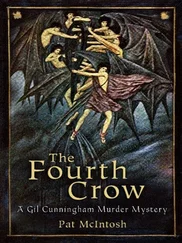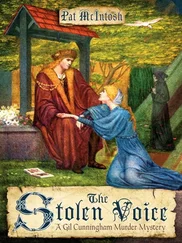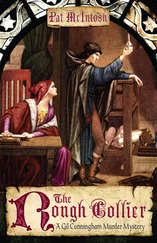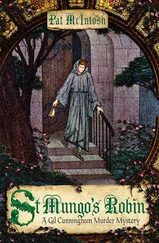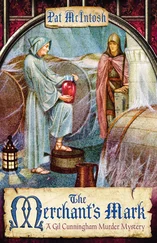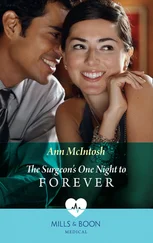Pat McIntosh - The Harper's Quine
Здесь есть возможность читать онлайн «Pat McIntosh - The Harper's Quine» весь текст электронной книги совершенно бесплатно (целиком полную версию без сокращений). В некоторых случаях можно слушать аудио, скачать через торрент в формате fb2 и присутствует краткое содержание. Жанр: Исторический детектив, на английском языке. Описание произведения, (предисловие) а так же отзывы посетителей доступны на портале библиотеки ЛибКат.
- Название:The Harper's Quine
- Автор:
- Жанр:
- Год:неизвестен
- ISBN:нет данных
- Рейтинг книги:5 / 5. Голосов: 1
-
Избранное:Добавить в избранное
- Отзывы:
-
Ваша оценка:
- 100
- 1
- 2
- 3
- 4
- 5
The Harper's Quine: краткое содержание, описание и аннотация
Предлагаем к чтению аннотацию, описание, краткое содержание или предисловие (зависит от того, что написал сам автор книги «The Harper's Quine»). Если вы не нашли необходимую информацию о книге — напишите в комментариях, мы постараемся отыскать её.
The Harper's Quine — читать онлайн бесплатно полную книгу (весь текст) целиком
Ниже представлен текст книги, разбитый по страницам. Система сохранения места последней прочитанной страницы, позволяет с удобством читать онлайн бесплатно книгу «The Harper's Quine», без необходимости каждый раз заново искать на чём Вы остановились. Поставьте закладку, и сможете в любой момент перейти на страницу, на которой закончили чтение.
Интервал:
Закладка:
The Official was silent for a while, still tapping his book. Finally he said, switching to the Latin he used when considering matters of the law, ‘The man-at-arms. The dead woman’s plaid and purse. Whatever girl was with the injured boy.’
‘I agree, sir.’
‘One more thing. Did Maggie not say there was a child?’
‘Yes indeed there is, I saw it. Born last Michaelmas, it seems.’
‘And when did Mistress Stewart leave her husband’s house?’
‘Before St Martin’s of the previous — Ah!’ Gil stared at his uncle. ‘Within the twelvemonth, indeed. I think Sempill cannot know of it.’
‘Or he does not know it is his legitimate heir.’
‘I am reluctant to tell him. What he would do to a child he needs but knows is not his own I dare not think.’
‘Keep your own counsel, Gilbert,’ said his uncle approv-
ingly. ‘Now, what difference will the child make to the disposal of the land? Can you tell me that, hm?’
Trust the old man to turn it into a tutorial, Gil thought. Obediently he marshalled the facts in his head and numbered them off as he spoke.
‘Imprimis, property the deceased held in her own right, as it might be from her father’s will, should go to the child rather than to her kin, unless she has made a will. And even then,’ he elaborated in response to his uncle’s eyebrow, ‘if she has left the property out of her kin, perhaps to the harper, they could challenge it, on their own behalf or the child’s.’
‘And moveables?’
‘Secundus, the paraphernal matter, that is her own clothes and jewellery and such items as her spinningwheel — I hardly think she was carrying a spinning-wheel about Scotland — these are the child’s, unless there is a will, but anything Sempill can show he gave her in marriagegifts returns to him. And, tertius, joint property held with her husband also returns to him, to dispose of as he sees fit. Unless,’ he added thoughtfully, ‘it transpires that he killed her.’
‘Unless,’ his uncle corrected, ‘it can be proven that he killed her. In which case it reverts to the original donor, whether his kin or hers. Very good, Gilbert.’
‘I’ve been well taught,’ Gil pointed out.
Canon Cunningham acknowledged the compliment with a quick glance, and pursued thoughtfully, ‘And what uncle is it that might leave John Sempill money, I wonder? Not his father’s half-brother Philip, for sure, anything he had would go to his own son, and that’s little enough by what I remember. And the Walkinshaws keep their property to themselves.’ He paused, lost in speculation, then noticed Gil stifling a yawn, and raised a hand to offer his customary blessing. ‘Get you to your bed, Gilbert. It’s ower late.’
Gil’s narrow panelled room, just under the roof, was stiflingly hot. Whichever prebend of Cadzow had built the house had not lacked either pretension or money, and even here in the attics the upper part of the window was glazed. Gil picked his way across the room in the dim light and flung open the wooden shutters of the lower half, reasoning that the night air was unlikely to do him any more harm now than half an hour since. One would not sleep in it, of course.
Returning to his narrow bed he lit the candle and sat down, hearing the strapping creak, and lifted his commonplace book down from its place on the shelf, between his Chaucer and a battered Aristotle. He turned the leaves slowly. Each poem brought back vividly the circumstances in which he had copied it. Several pieces by William Dunbar, an unpleasant little man but a good makar, copied from his own writing when he had been in Glasgow with the Archbishop. Two songs by Machaut, dictated by Wat Kerr in an inn near St Severin. Ah, here it was. The Kingis Quair, made be the King of Scots, or so Wattie had insisted, when Gil had transcribed it one long afternoon in a thunderstorm from a copy owned by … owned by … was it Dugald Campbell of Glenorchy? No matter. He skimmed the rime-royal stanzas, his eye falling on remembered phrases. For which sudden abate, anon astart The blood of all my body to my heart. Yes, it was like that, the effect of the sight of her against the light in the doorway of her father’s house, the blood ebbing and then rushing back so that his heart thumped uncontrollably.
Quite ridiculous. I am to be a priest, he thought.
And here were the descriptions, as if this long-dead king had seen Alys Mason in his dream. He read on, picking out the cramped lines with satisfaction, until the candle began to flicker.
It was, he realized, very late. He rose, returned the book to its place, and went to the window to close the shutters.
He leaned out first, breathing in the scent of the gardens after the rain. The sky was clearing, and the bulk of the Campsie hills showed against the stars to the north. Late though it was, there were lights in the Sempill house, one where he could see a table with cards and several pairs of hands, and above that and to one side, nearly on a level with him, a room where someone came and went slowly.
It was only when she paused and began to comb her wealth of golden hair that he realized that Euphemia Campbell was undressing before a mirror.
He watched, fascinated, the movement of little white hands and dainty arms, the tilt of the slender neck, the fall of the rippling gold locks as she turned her head before the mirror. How many candles was she burning? he wondered. There was certainly one to one side, and another beyond the mirror, to judge by the way the white shift was outlined, and maybe more. Little surprise that Sempill was short of money.
Euphemia turned her head and moved gracefully out of his sight. The square of light stood empty, while on the floor below the card-game continued, apparently at the stage of declaring points from the new hands dealt. Gil leaned on the sill a moment longer, then drew back into the room and reached for the shutters.
Euphemia came back into view, but not alone. The man with her was still fully clothed, although she was enthusiastically attempting to remedy this, and he had already got her shift down over her shoulders.
Gil stood, hand on the shutter, watching in astonishment. The man’s face was buried in her neck and his movements were driven by what could be presumed to be strong passion, but even at a distance and from this angle he felt sure it was not John Sempill. The fellow was not much taller than Euphemia, and his hair was dark in the candlelight and surely longer than Sempill’s sandy pelage.
The woman spoke to him, apparently laughing, and he raised his head to answer her. Gil stared, frowning. The urgent manner might be put down to the circumstances but that dark, narrow face, black-browed in the candlelight, was certainly not Sempill’s. It was the little dark fellow who had been outside St Mungo’s, who had been in the procession which rode through the May Day dancing — dear God, was it only yesterday? — and who had not been present when he questioned the household today. The Italian musician. He suddenly recalled the expression he had seen on Euphemia’s face when the man was mentioned.
Euphemia’s shift had fallen to her waist. Gil was conscious first of regret that she had her back to him and then of sudden disgust. Such behaviour could be excused in the mastiff down in the courtyard, but not in a human being.
The two entangled figures moved out of sight, presumably in the direction of Euphemia’s bed. Thoughtfully, Gil closed the shutters and turned to his own.
He spent longer than usual on his prayers, but nevertheless he found when he finally lay down that sleep was a long time claiming him. Images of women danced behind his eyelids, of Bess Stewart as she lay under the scaffolding in the half-built chapel, of Ealasaidh in her grief, of Euphemia just now in the candlelight wrestling the battle of love, and then of Alys weeping for a woman she had never met while the Franciscans chanted psalms in the shadows. He was disconcerted to find that, though he had spent a large part of the day in her company, and though he could remember the tears glittering under her lashes, his image of Alys was that of the princess in the poem, and he could not remember clearly what she really looked like.
Читать дальшеИнтервал:
Закладка:
Похожие книги на «The Harper's Quine»
Представляем Вашему вниманию похожие книги на «The Harper's Quine» списком для выбора. Мы отобрали схожую по названию и смыслу литературу в надежде предоставить читателям больше вариантов отыскать новые, интересные, ещё непрочитанные произведения.
Обсуждение, отзывы о книге «The Harper's Quine» и просто собственные мнения читателей. Оставьте ваши комментарии, напишите, что Вы думаете о произведении, его смысле или главных героях. Укажите что конкретно понравилось, а что нет, и почему Вы так считаете.


